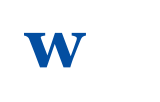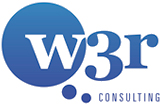The Client
Millions of Americans spread across multiple states trust our client’s organization to offer coverage that best supports their members and their families. More than just providing outstanding coverage, our client strives to educate their members, helping them make decisions and adjustments to their habits to improve their lives for the better.
The Challenge
Our client prioritizes compliance mandates and conducts regular revisions to their procedures, practices, and technology to comply with evolving regulations. A recent mandate aimed to create a greater data governance framework around data extracts leaving the organization.
Our client needed to arrange real-time tracking on all data leaving their organization and control data sharing with current or potential competitors to avoid revealing pricing or proprietary business practices
Through our partnership with the client and our experience implementing similar data governance measures, w3r set out to deliver those results.
The Initial Assessment
Our data governance team began the project with a fundamental assessment of their current state. Implementing an effective data governance framework would require clear documentation of their present processes and systems, interviews with stakeholders and end users, verification of their pain points, and confirmation of their workflow. Additionally, the client would need to identify instances where data contradicted individual requests for restrictions on or exclusion from reporting or data sharing with competitors.
Our audit unveiled three additional and unexpected processes in the data exchange cycle. Each process operated under its own distinct mandate that was wildly different from the others. There were extensive issues with the quality of their data and many systems functioned with a bad or inconsistent understanding of what was being shared.
Moreover, there was a need for a change in their enterprise-wide approach to data governance, encouraging better communication and process ownership from the top down. Existing processes were time-consuming and many bypassed formal procedures to achieve ad hoc results – at the loss of cohesion and accountability.
Our client was unaware of the full extent of the quality and operability issues in their data exchange processes. Our team outlined incremental steps to achieve a higher functioning data exchange with more mature data governance practices.
The Implementation
The first phase of implementation helped our client capture data in their outgoing exchanges with greater accuracy and consistency. Our team did so by identifying critical data for the organization, cleansing that data, and standardizing it before migrating all relevant information from their separate systems into a new data platform.
When designing the user-facing platform, our project team took the pain points identified early in the process and created a clear and streamlined tool for users. The consolidation of over 200 data fields across two competing systems into 125 total fields in a single platform simplified their processes.
Plus, the elimination of text boxes reduced the client’s guesswork, creating a uniform system that encouraged greater consistency from their requests. Regularly sorting through data on national competitors enhanced the ability of our client’s platform to identify data exchange request from the competition, allowing their internal team to remove all proprietary information.
The Results
At the end of phase one, our client had a minimum viable product (MVP) data exchange platform built on exceptional data governance practices. Early users appreciated the overall functionality and ease of use. Their feedback guided the next iteration of the data exchange platform to elevate performance and usability even further.
Though there was a period of adjustment, our work alongside early adopters helped grow their trust in the new capabilities and greater consistency of this platform. Stakeholders in other departments were soon requesting improved data exchange platforms for their divisions. As a result, w3r is currently rolling out this solution enterprise-wide, enhancing their operations and data governance in ways that improve the experience and lives of members nationwide.


